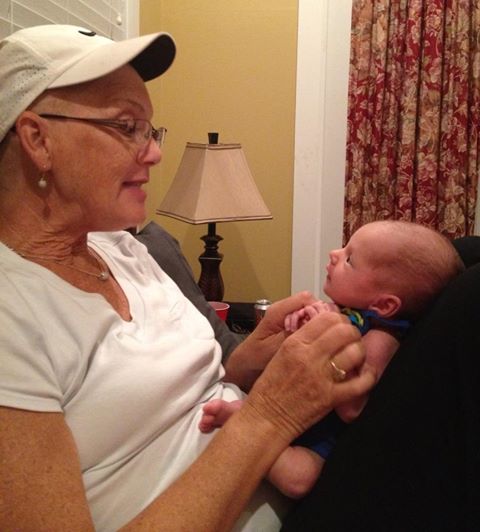When Your Grandchildren Have Food Allergies
When Your Grandchildren Have Food Allergies
This is a guest post by my friend Juliet from AskGranny.com
Dedicating this post in memory of Jacob MacDonald from Minnesota who died September 22, 2017. On the evening of Sept. 16, while Jacob was at a friend’s house and the 15-year-old ate a cookie that turned out to contain peanuts. When he came home an hour after eating the cookie, he began vomiting. The family administered epinephrine and took him to the hospital right away. You can read more of his story here.
When I was a child I didn’t know anyone with food allergies. And the thought that kids couldn’t eat peanut butter was akin to heresy.
But, as we all know, today is a different story. The rise in the number of children with food allergies is alarming and medical professionals don’t really understand why it’s happening.
The upshot for us grandparents is that we need to educate ourselves about the problems since our own grandchildren may have or develop these sensitivities to various food items.
Our children, the parents of these kids with food allergies, are often at their wits’ end to manage their diets and keep them safe.
As grandparents, we, too, need to know how to protect young children suffering from various food allergy problems.
Fast Facts
• Food allergies are on the rise. Today in the United States one in four children suffers from some form of food sensitivity. In the U.K. hospital admissions for children suffering from food allergies has increased 700%.
• While, in theory, people can be allergic to any food, in reality just a handful of foods cause 90% of the allergic reactions.
• When a person’s immune system reacts to an allergen (food), the body can go into a state called anaphylaxis, a state which can be fatal if not treated with an injection of epinephrine.
• Some children do outgrow their allergies, especially those to eggs, milk, wheat and soy products. But those allergic to peanuts, seafood, fish and tree nuts rarely get over those allergies.
• Food allergies do tend to have genetic connections. Thus if the parents have allergic conditions including eczema, asthma or food allergies, the children are more likely to have them too.
• There are currently no cures for food allergies. The only way to manage the condition is to avoid foods that make one ill. Some doctors are trying immunotherapy, a series of allergy shots to help desensitize children and adults with severe allergies. There is hope that many severe cases will be aided by this treatment.
• An allergic reaction can be caused by the tiniest amount of the food item. For example just a teaspoon of milk powder, or a fragment of a peanut can be life-threatening to one with an allergy to that product.
• Allergic symptoms can be mild, such as itching and rashes, but can progress to vomiting, diarrhea, wheezing and, the worst reaction, anaphylactic shock, which requires immediate emergency medical treatment.
What We Need to Know and Do
• Food allergies are real. While they weren’t a big problem in the past, they are today. We as grandparents need to take them seriously, especially when caring for our grandchildren.
• We must abide by the rules laid out by the parents, even if we don’t fully understand them. The doctor and the parent are the primary team overseeing your grandchild’s care. Don’t suggest other treatments or cures.
• Be especially careful when your extended family gathers for celebrations and holidays to follow the eating guidelines completely. This can be a challenge and often requires careful reading of food labels.
• Be sure you know how to react should your grandchild have a medical emergency related to his or her allergies. Keep an epipen in your home and with you as you travel with the grandchildren. Be sure you know how to administer the shot in case of emergency.
• Be aware of the added stress parents live with daily when their children have food allergies. Do all you can to cooperate with them and support them.
• In the case of young children visiting your home, take precautions to remove any food items that may make them sick. Just as you baby proof your home, you need to “food proof” it.
• When the grandkids are eating with you, share your menu plans ahead of time with the parents. It is a lot of work, but your grandchild’s health and safety are at stake.
One of the challenges of grandparenting is keeping up with current trends and conditions. The rise of food allergies across the globe is a sad and frightening fact. Let’s do all we can to support our children and grandchildren as they deal with this reality.
www.askgranny.com is about: health & well-being, travel, food, recipes, gifts, discounts & lots more interesting and useful info for grandparents, senior citizens and the over 50s








